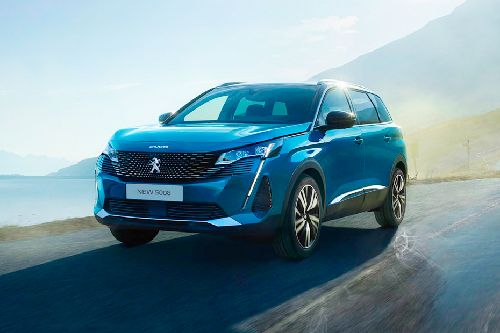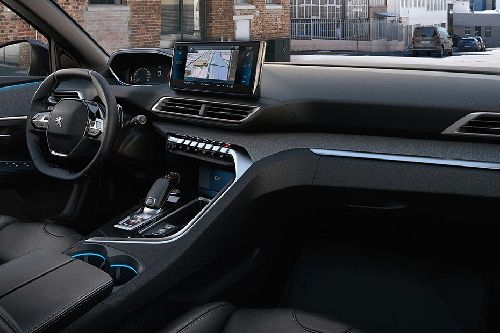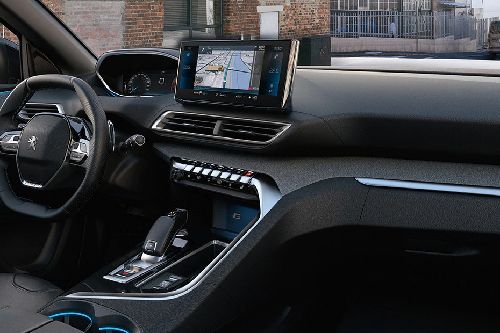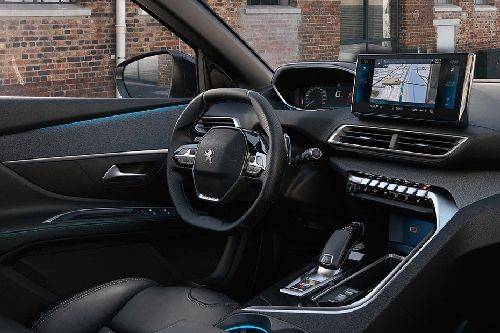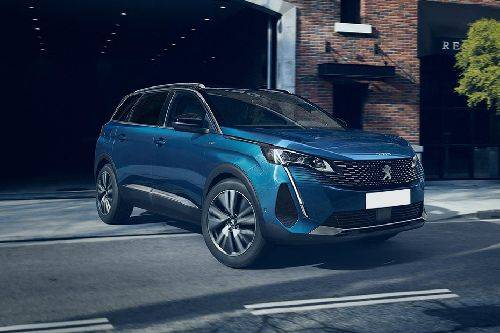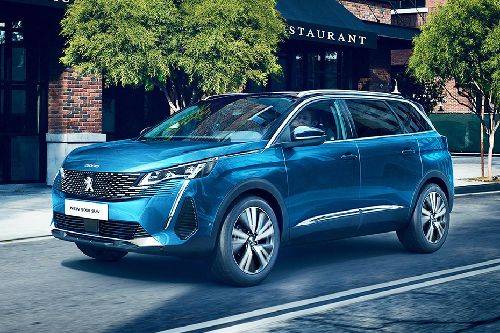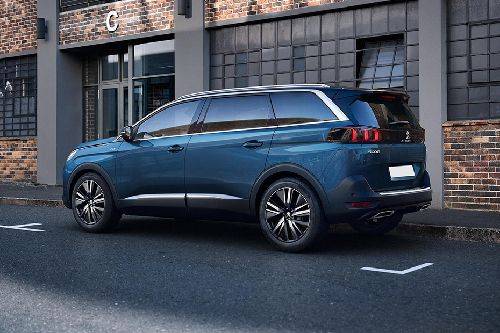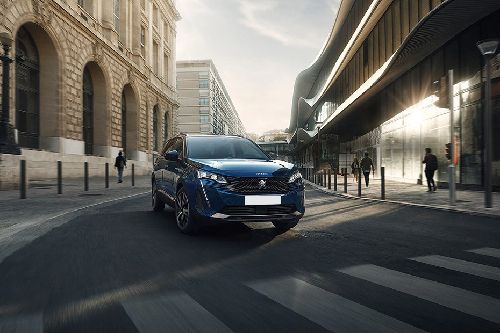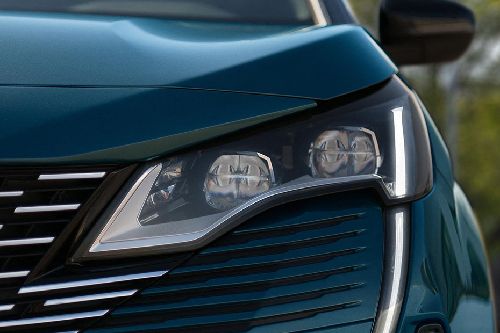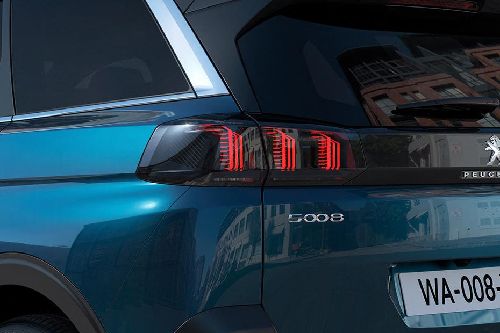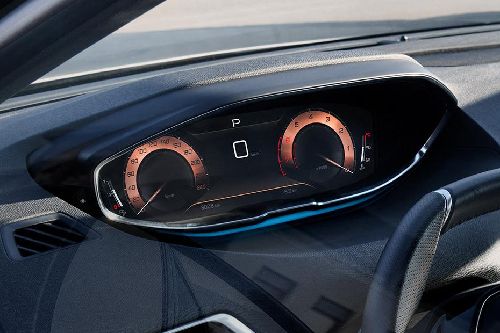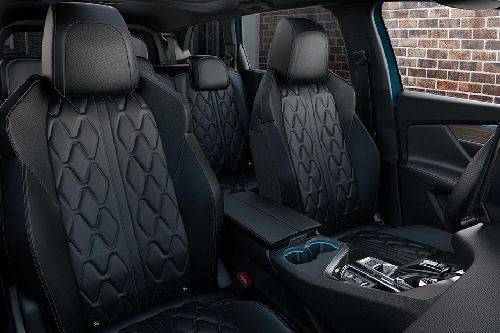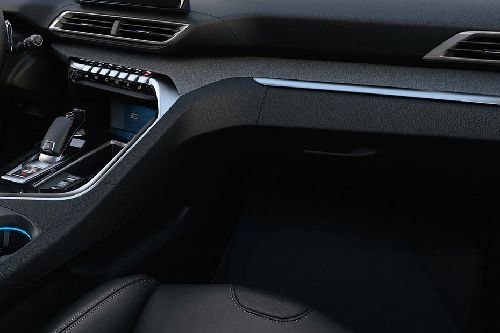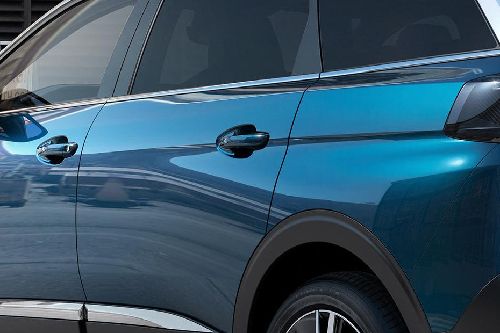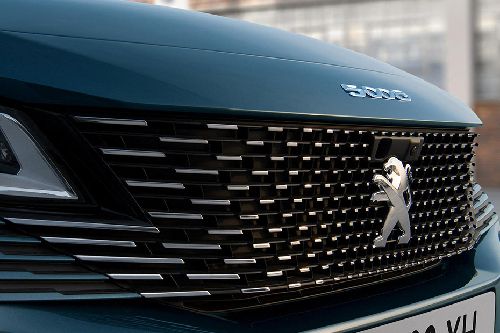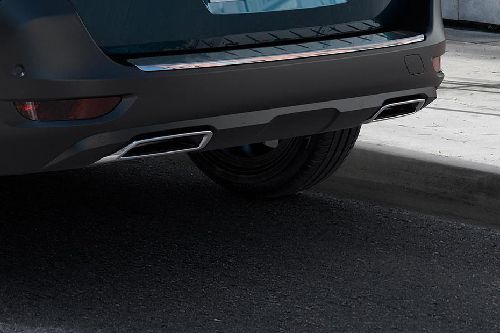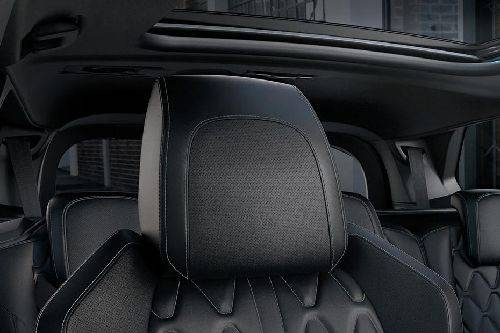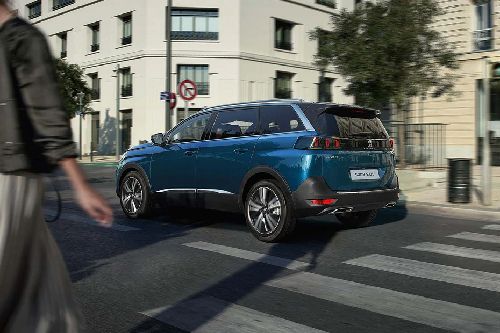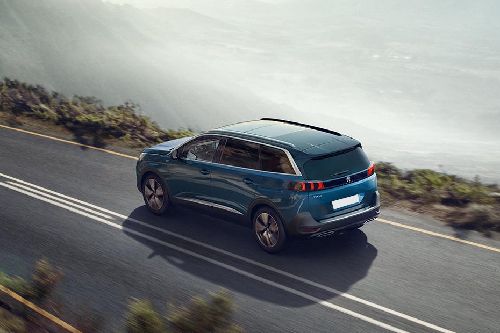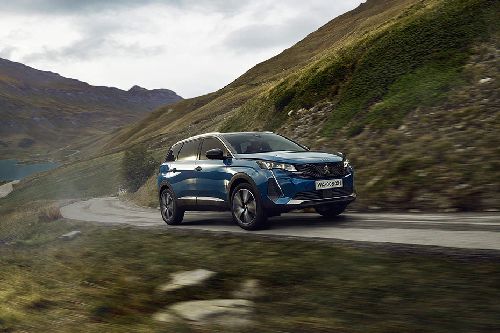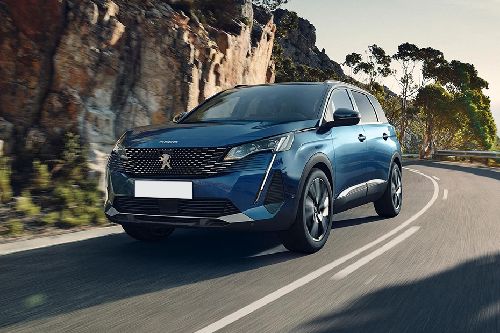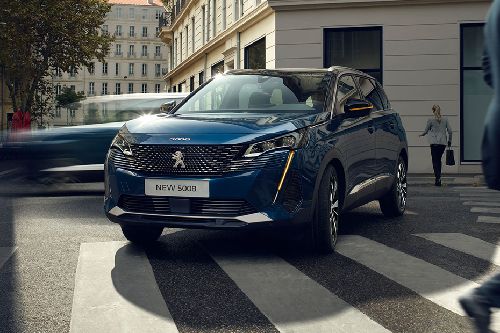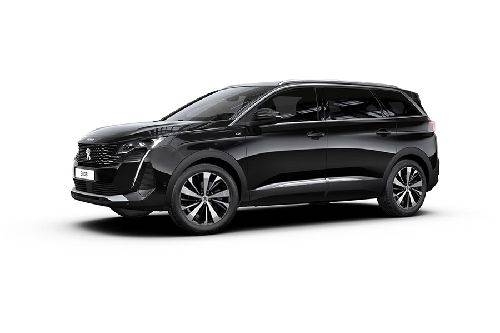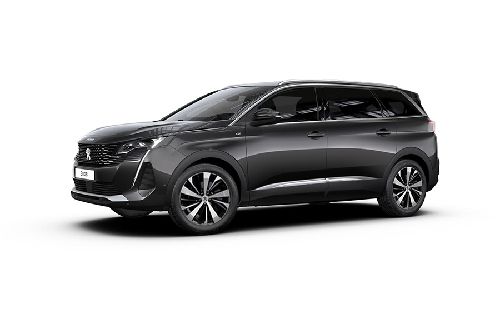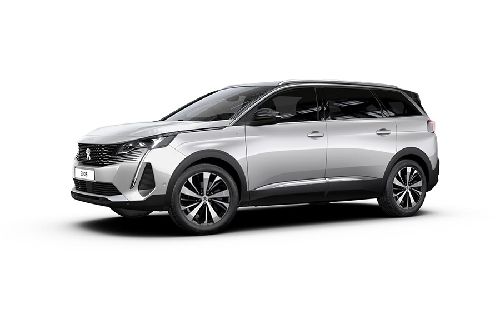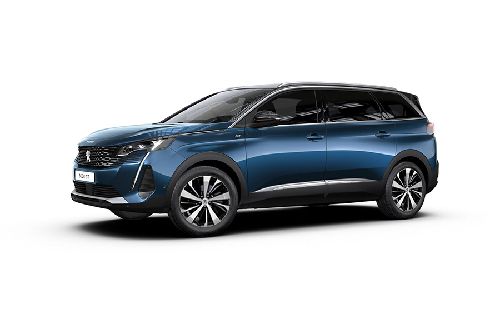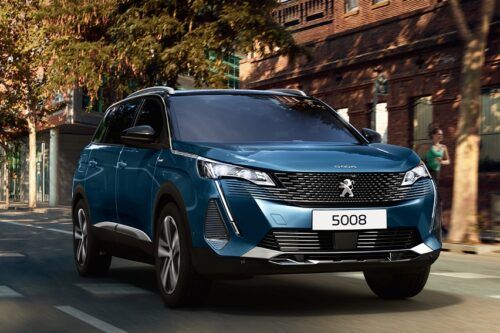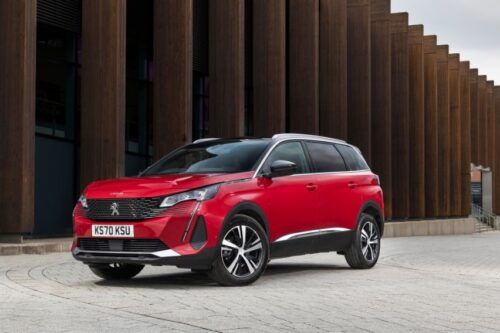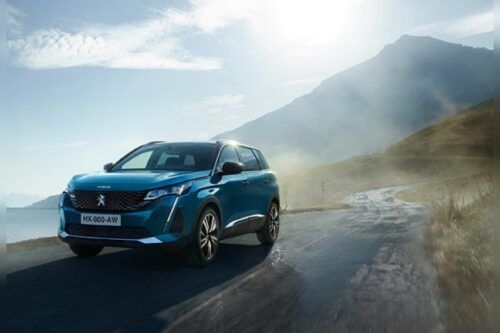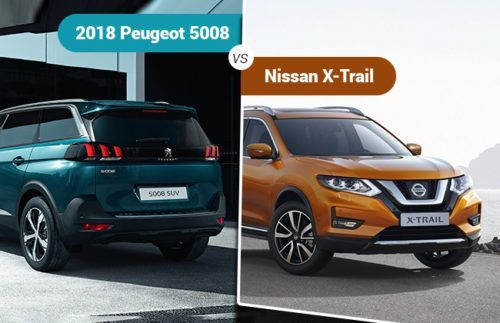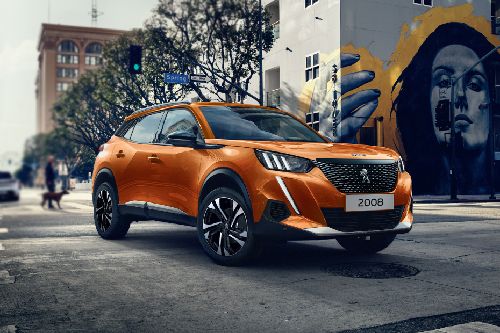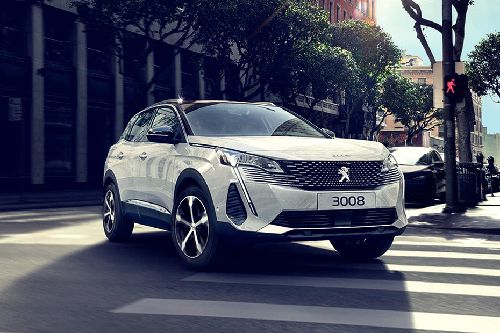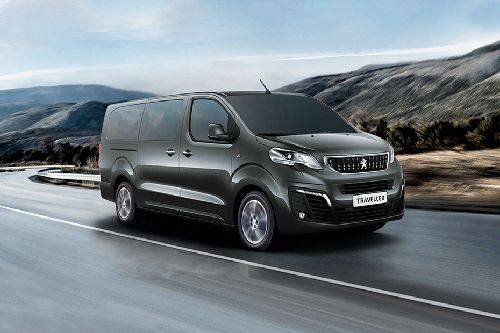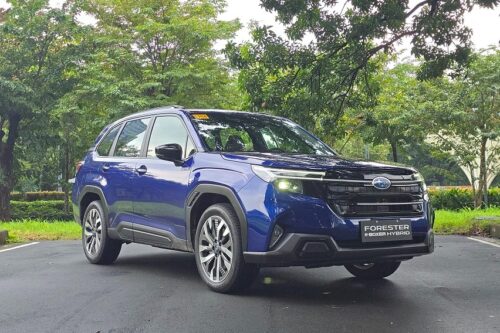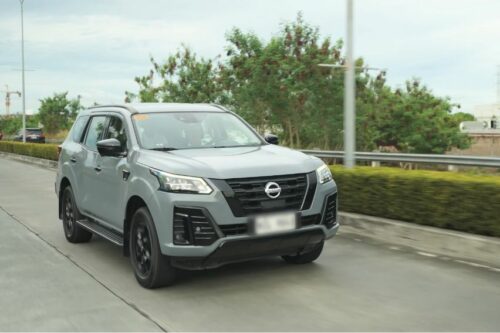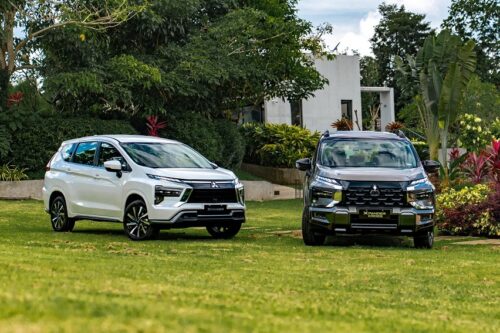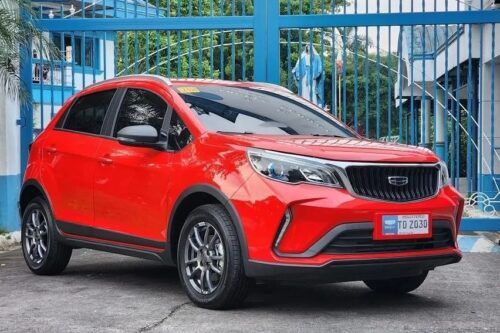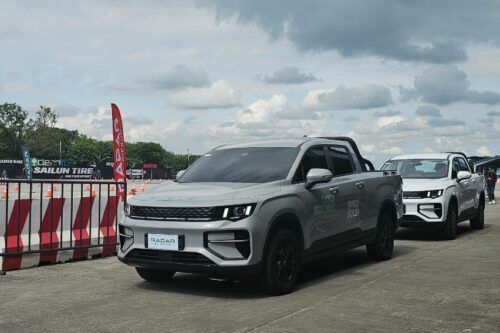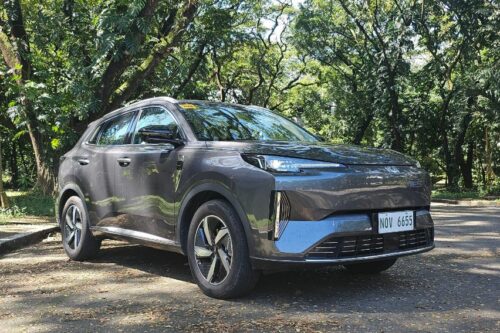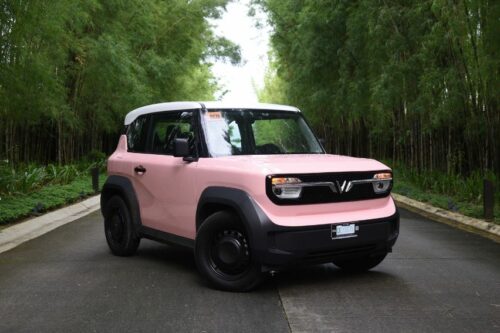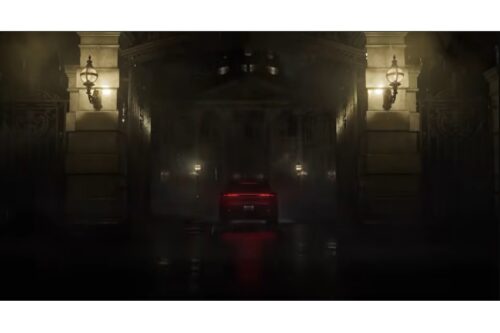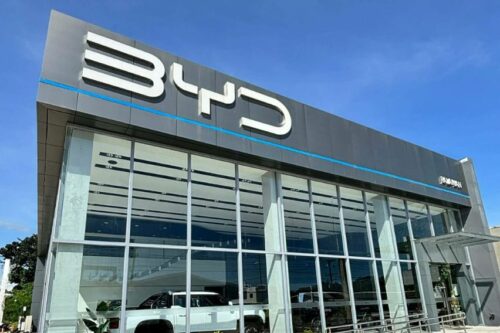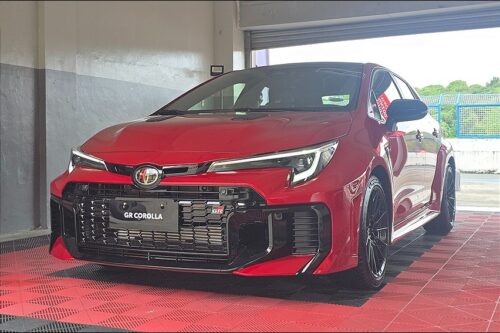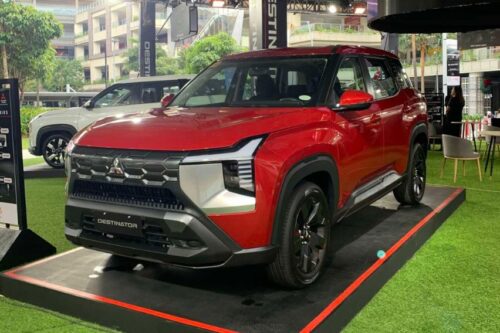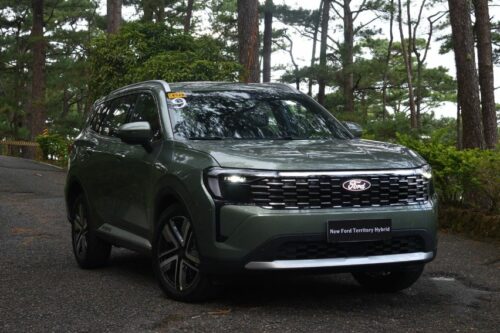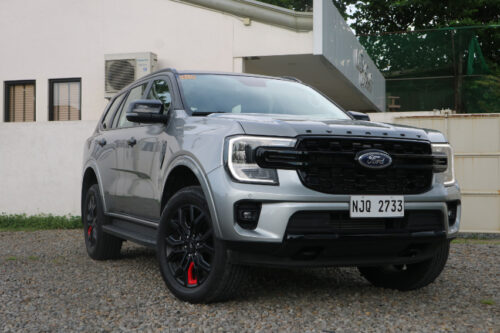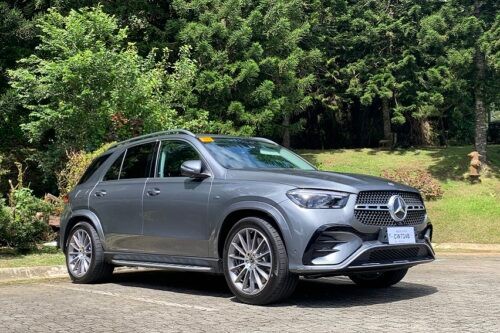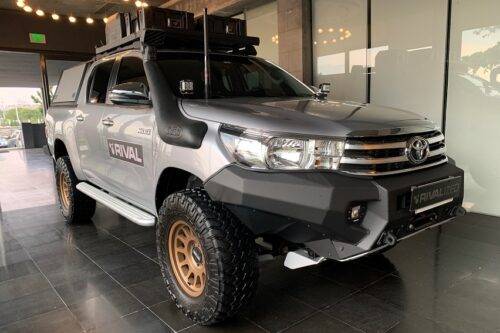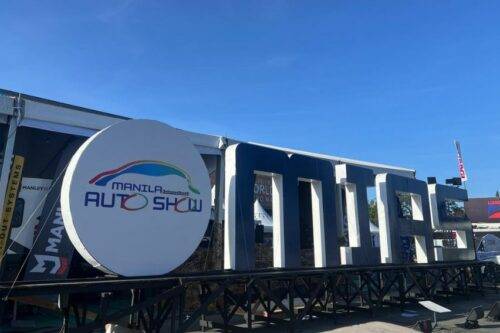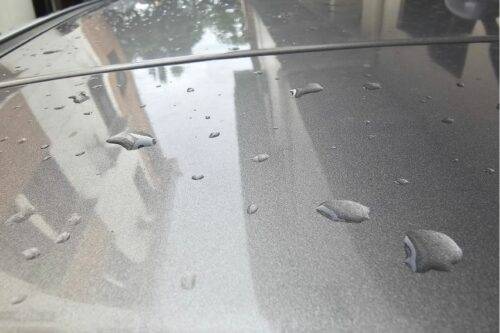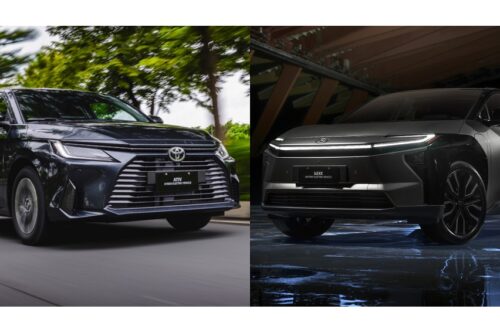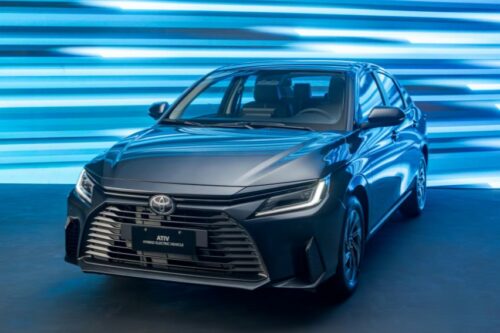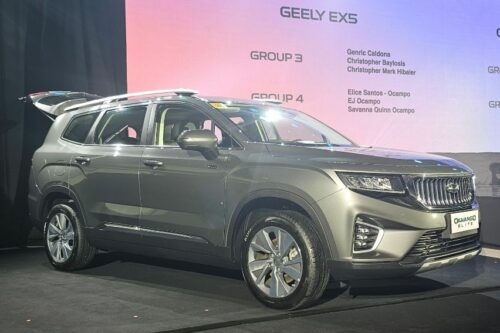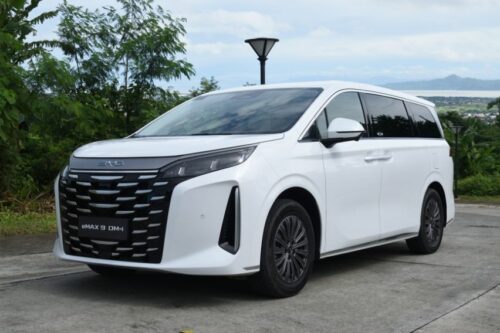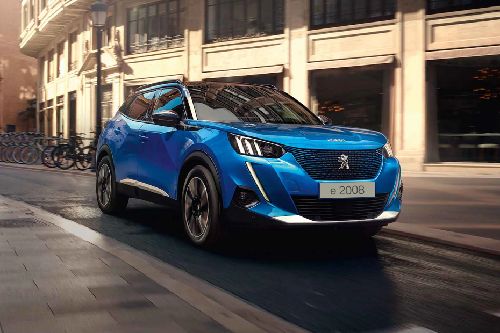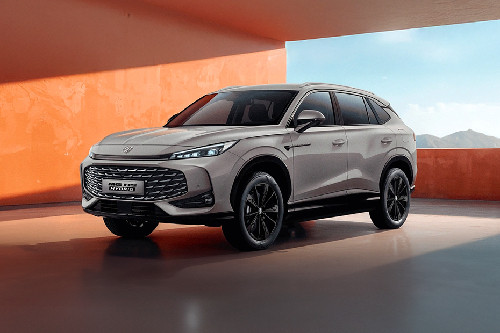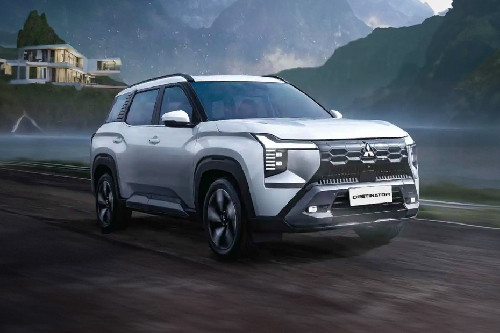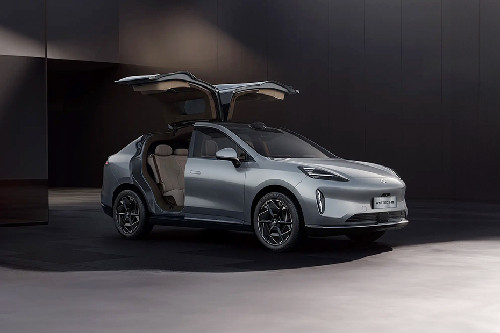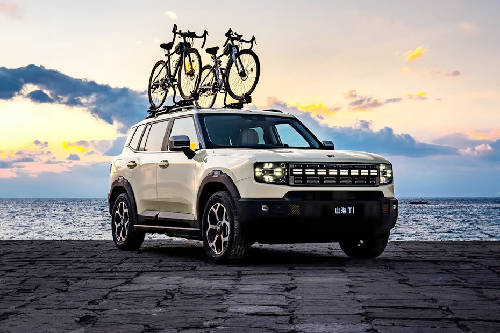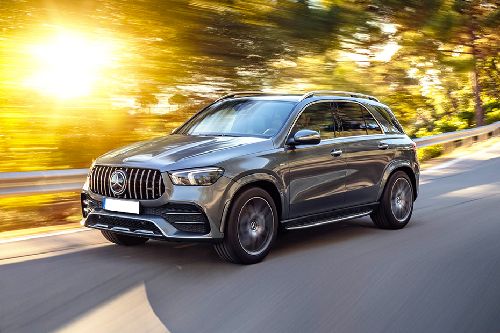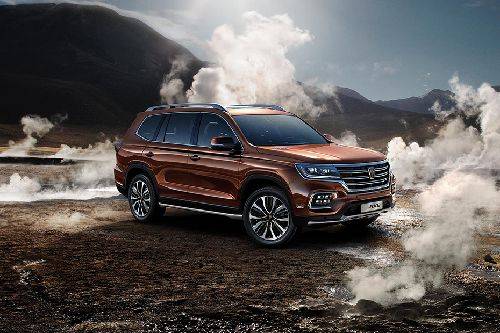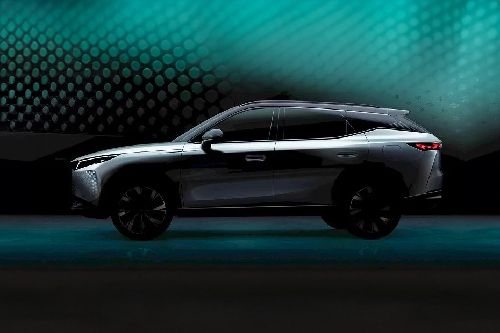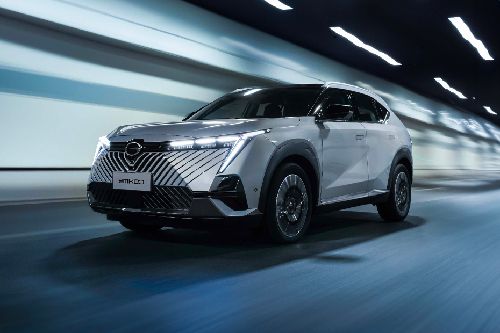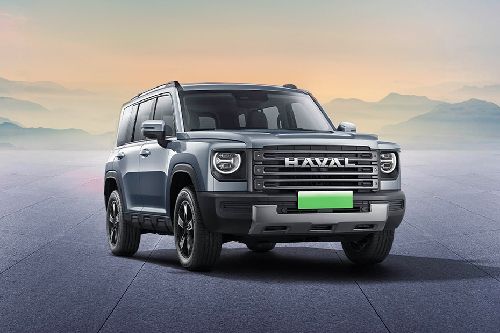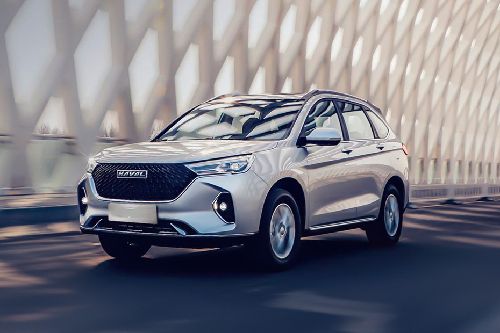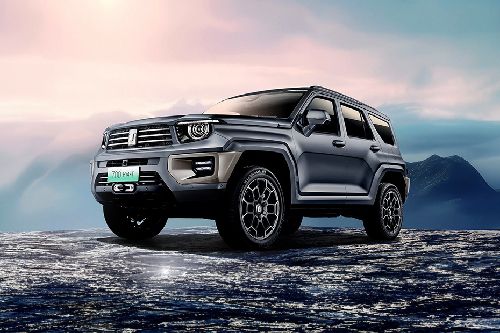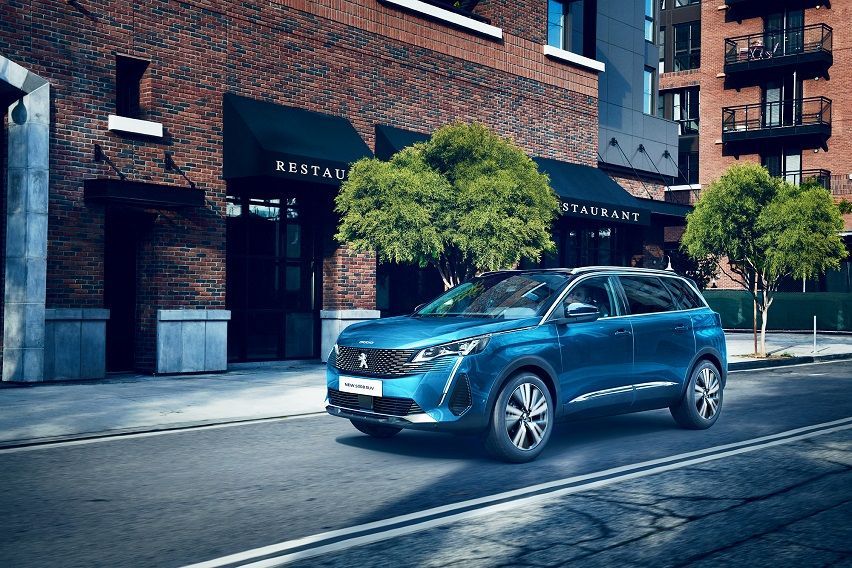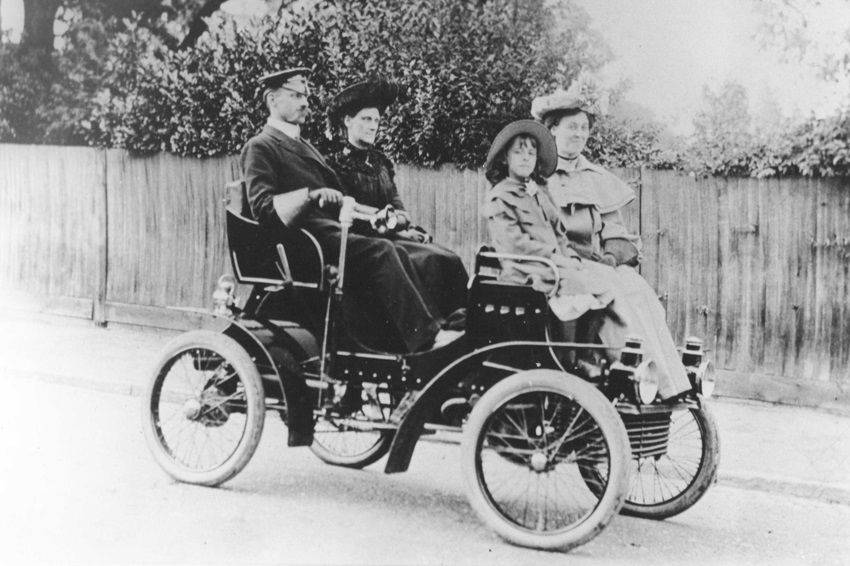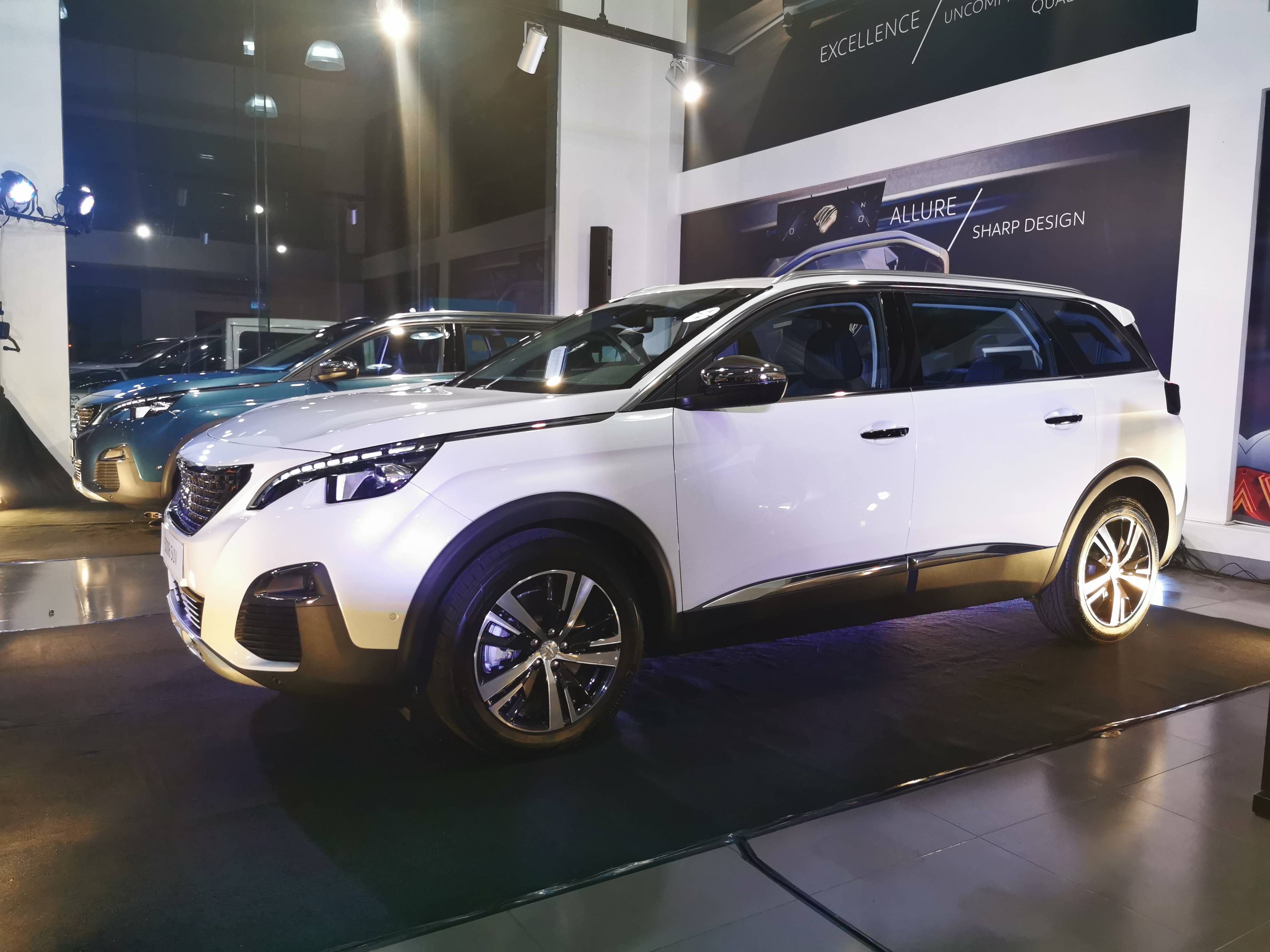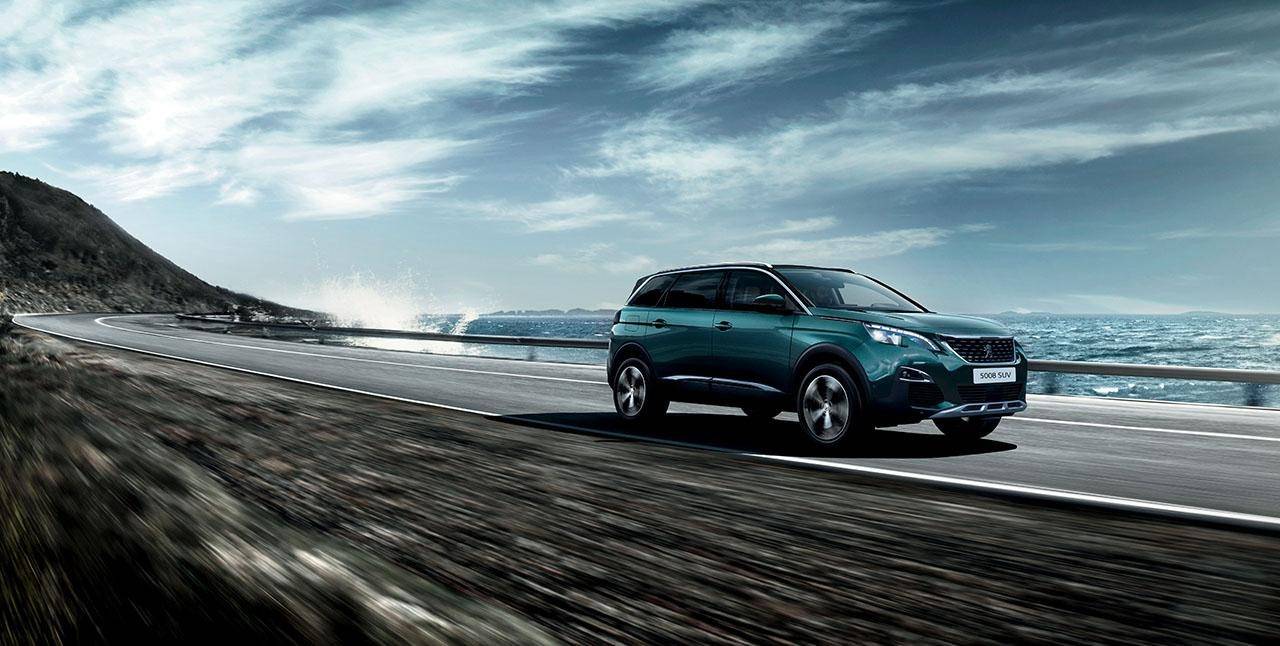Wingless wonder: The new Peugeot 9X8 Hybrid Hypercar is a design icon
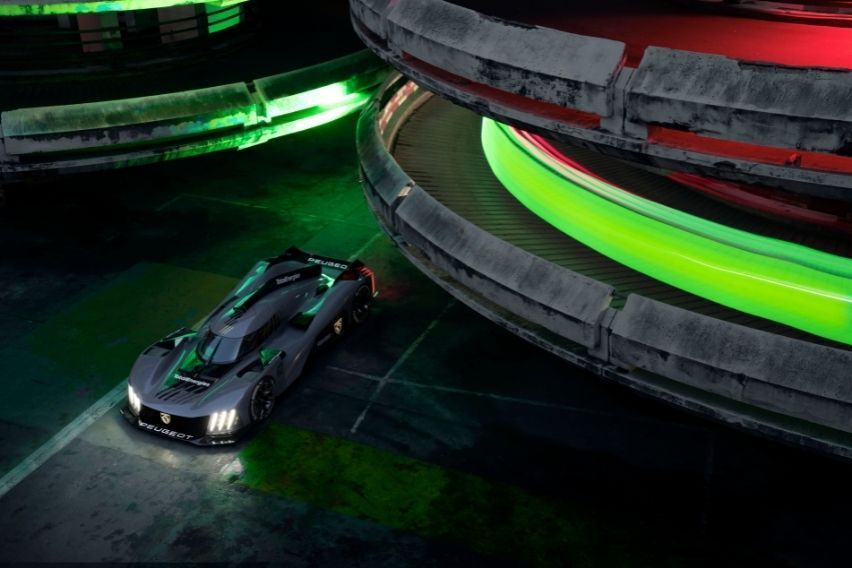
MANILA: The Peugeot 9X8 is said to be not just a typical race car, but a design and technical breakthrough as well. Peugeot Design Director Matthias Hossann has put the 9X8 in "brutalist architecture" to highlight its groundbreaking design ahead of its race track debut this year. This gave an opportunity for fashion and supercar photographer Agnieszka Doroszewicz to experiment with the light, patina, and contrasts of the concrete surroundings. Her images symbolize the famed 24 Hours of Le Mans, a race that is characterized by changing light as hours pass.
KEY TAKEAWAYS
What is the most prominent aspect of the Peugeot 9X8's design concept?
The most prominent aspect of its concept is the absence of a rear wing, which gives it its distinctive look.What powers the Peugeot 9X8?
The Peugeot 9X8 is powered by a V6 2.6-liter twin-turbocharged internal combustion engine with 500kW at the rear and a 200kW electric motor at the front.The Peugeot Design team went to great lengths to build the new 9X8 Hybrid Hypercar. They infused it with all of Peugeot’s modern aesthetic codes, including a feline stance, dynamic accents, sleek and sculpted flanks, and of course, the Lion’s signature three-clawed luminescent logo. The 9X8 is a sleek and slim hypercar that evokes passion while also symbolizing speed.
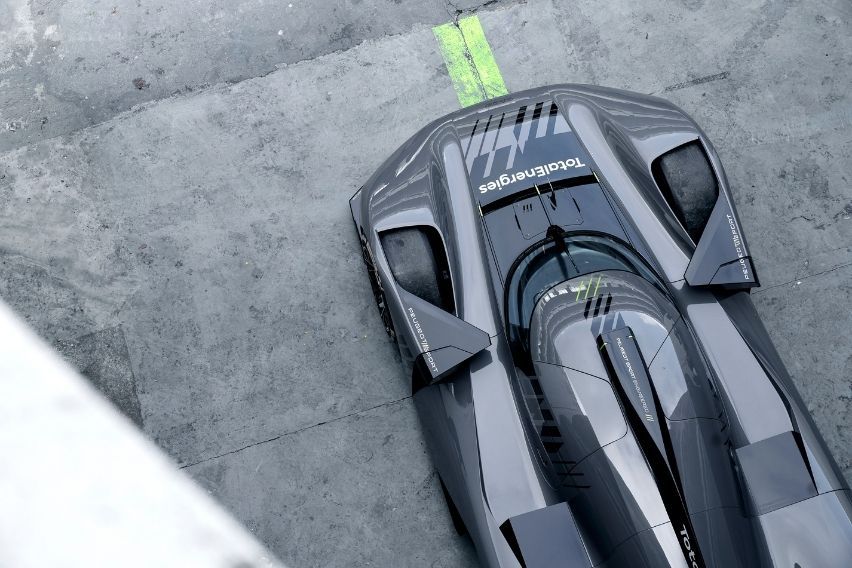
It is every automotive designer’s dream to create a race car. With Hossann’s works frequently limited to small details and the car’s livery, the chances of that goal ever coming true were close to zero — until now. Before, performance was more important than the brand’s style and personality, to the point that race cars were pretty much indistinguishable from one another.
Engineers and designers collaborated closely on the 9X8 Hybrid Hypercar, with the goal of producing a competition vehicle that combines style and technology. In a statement, Hossann shared, “The level of discussion was absolutely unprecedented. We worked hand in hand with the Peugeot Sport team. To identify the theme for our future race car, we first launched a competition between the designers. We received a lot of submissions as this project aroused massive enthusiasm, with the prospect of one day seeing our creation compete against the world's most prestigious brands on the most historic tracks. We developed the theme in collaboration with Peugeot Sport engineers, and set to work.”
“Guided by performance, for which no compromise was ever made, and under innovative regulations, the engineers left as much room as possible to allow the Hypercar’s designers freedom of creativity,” Hossann added. “The Peugeot 9X8 was born with the DNA of the new Hypercar regulations (LMH) set by the Automobile Club de l’Ouest, the organizer of the 24 Hours of Le Mans, and the Fédération Internationale de l’Automobile (FIA). The new regulations, and the fundamental traits of Peugeot, mean that this car will stand as a milestone in the history of endurance racing.”
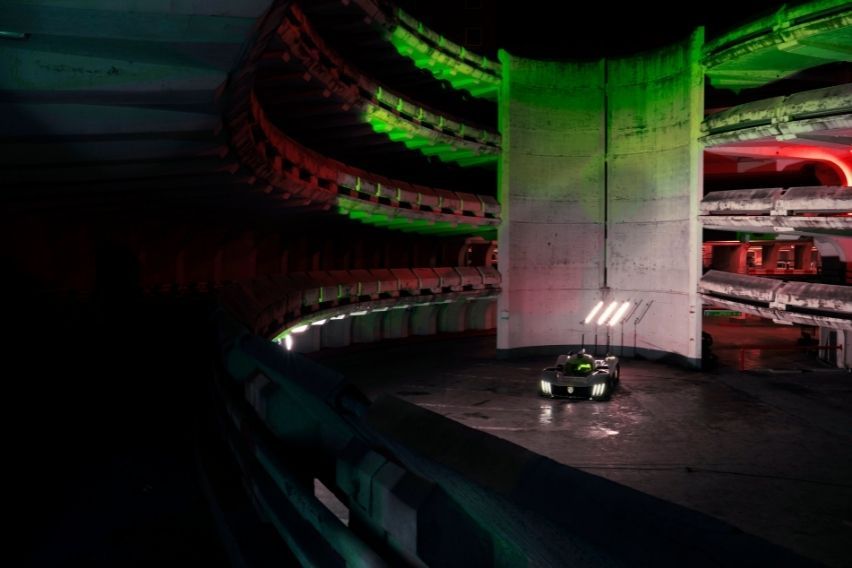
As Peugeot Design’s ultimate ambassador and source of inspiration for future developments, the 9X8 was the first model to bear the new roaring Lion badge, which was unveiled last year. All future Peugeot models will feature the badge.
“The technology of the Peugeot 9X8 is entirely a Peugeot Sport creation, and we had to show that in our design. Without any compromise on performance, we wanted to give it a unique attitude while keeping the streamlined body, which contrasts with the very geometric endurance cars of the previous generation,” Hossann stated.
The 9X8’s cabin, which is based on Peugeot’s signature i-Cockpit concept, is another proof of the carmaker’s skill and style. The attention to detail in the interior design was only equaled by the stringent requirements for the exterior, which were similar to those of production models. The entire cockpit was created with the driver in mind, providing a high level of ergonomics and ease of use.
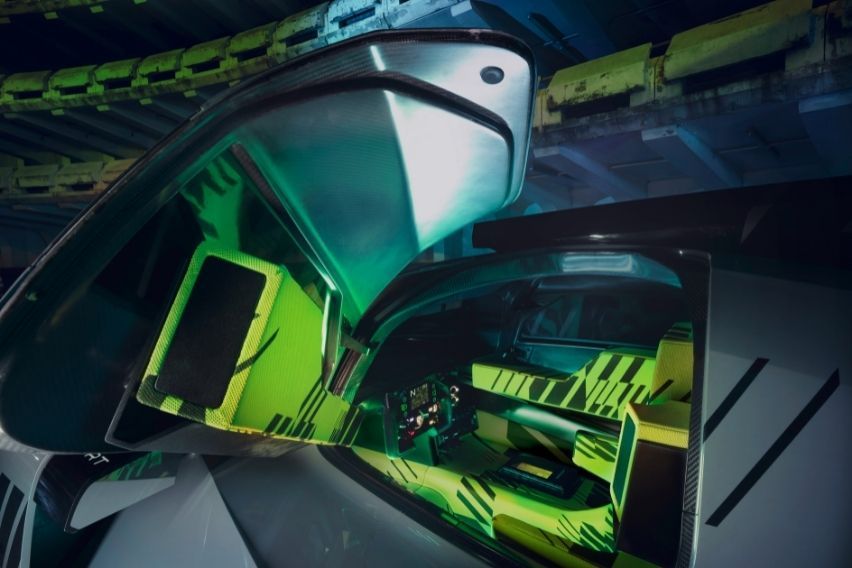
The 9X8 is a significant deviation from previous generations of racing cars. When the drivers saw it for the first time, they said it is a true milestone in motorsport. "There will be a before and after Peugeot 9X8, and we will be lucky to have been part of it."
“On the walls of the design studio where the Peugeot 9X8 was born, we had posted three key words: iconic, efficient, emotional,” Hossann explained. “This way, the whole team embraced these concepts, regardless of each individual’s involvement across the various development stages. I had put the word ‘iconic’ in everyone’s mind, because I wanted a car that was both immediately recognizable and that marked a breakthrough, a fundamental generational shift.”
“Despite the quality of the many proposals that came out of our internal design competition, one was quickly established as the chosen theme. It broke the codes of the previous generation of endurance cars. The idea posited was that this would be less of a previous-generation race car and more identifiable as a Peugeot. It needed to bring together more than just fans of motorsport, as this would be a sports car that could in theory be driven on the road as well as the race track,” Hossann added.
The most prominent aspect of its concept is the absence of a rear wing, which gives it its distinctive look.
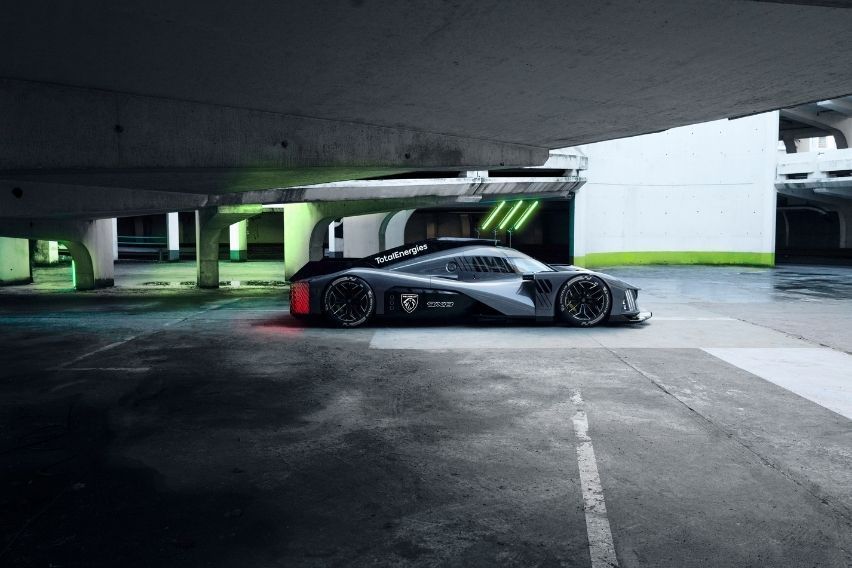
The rear wing was introduced to endurance racing at Le Mans in 1967, and has since become the industry standard. Since 1971, no car had won without a rear wing for over 50 years, demonstrating the Peugeot designers and engineers’ determination and ingenuity.
A lot of effort was made to create the 9X8’s rear end. A pointed cabin appeared, along with the very specific wrap that is seen today over the rear wheel, following the original concept of a somewhat pouncing vehicle.
Peugeot has won at Le Mans using two different generations of cars: the 905 with a V10 petrol engine in 1992 and 1993, and the 908 with a V12 HDi-FAP engine in 2009. The Peugeot 9X8 heralds the start of a new era once again with the technology it uses.
Peugeot 9X8 Technical Director Olivier Jansonnie said, “Endurance racing is based on rules that allow us to demonstrate Peugeot’s expertise across all electric powertrains. With the 9X8, Peugeot is starting a new chapter in hybrid sports cars. Performance is becoming more electric and more virtuous, without sacrificing anything in terms of competitiveness.”
The 9X8 shares several characteristics with other Peugeot models, such as the Peugeot 3008 Hybrid or the Peugeot 508 Peugeot Sport Engineered, in terms of four-wheel drive hybrid propulsion. It has a V6 2.6-liter twin-turbocharged internal combustion engine with 500kW at the rear and a 200kW electric motor at the front.
“We wanted to signify this technological and cultural shift with a new color signature, which we have called Kryptonite. We had already launched it shortly before our Hybrid Hypercar 9X8 on our new series model, also a hybrid: the 508 PSE (Peugeot Sport Engineering). It shares its color and many technology features with the Peugeot 9X8. Within a few weeks of each other, both have brought the Peugeot brand into the era of electric high-performance,” Hossann stated.
He also mentioned that the Peugeot Design team made use of groundbreaking technology, saying, “The designers’ work involves toing and froing between designs and 3D tools in order to include virtual reality visualization phases.”
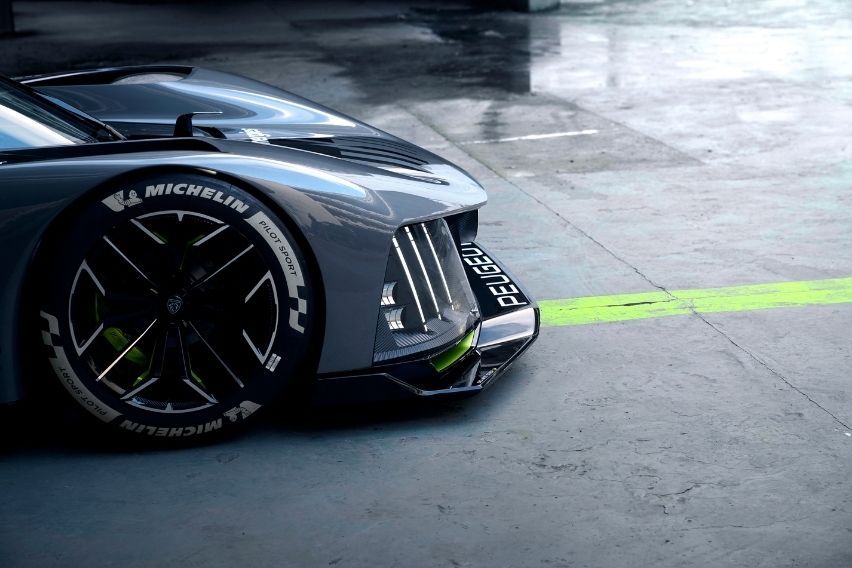
The designers used 3D tools and CAD (Computer Aided Design) to generate the volumes. This technology made it easy to share files with engineering teams. Once the volumes are created, the virtual reality stage begins.
“A high point was reached when we showed the complete Peugeot 9X8 to the engineering team using a virtual reality headset. Olivier Jansonnie, the technical director, circled the car for quite a while with the headset on. His enthusiasm was crucial,” Hossann recalled.
He also revealed that they incorporated illuminating components on the silhouette to ensure that the 9X8 can be easily recognizable by everyone at day or night. “Our Peugeot Design team includes fans of the 24 Hours of Le Mans. Having been there as spectators, they know that at night, trackside, the cars have few distinctive signs. Some cars can be recognized by the sound of their engines, but in many places, the cars’ visual presence is mostly limited to bright lines fading away into the night,” Hossann said. “For the light signature, the three claws — present on all our current production cars — was the obvious choice. Integrating them into the design at the front was much easier than doing so at the rear. We've integrated the three light claws in separate composite components creating gaps through which air is extracted. We can't wait to see their effect on the track.”
As the photographer behind the series of images of the 9X8, Doroszewicz immediately discovered the value of the car’s light signatures. She said, “We really wanted to spread our shoot over a long day, and extend it late into the night. I was able to achieve a perfect evocation of the Le Mans 24 Hours in my photos. Daylight, artificial lighting and the bright illumination of the headlights combine with the powerful pattern of the car's light claws. Of course, we are not in Le Mans at all, but it is the whole atmosphere of Le Mans that we have here.”
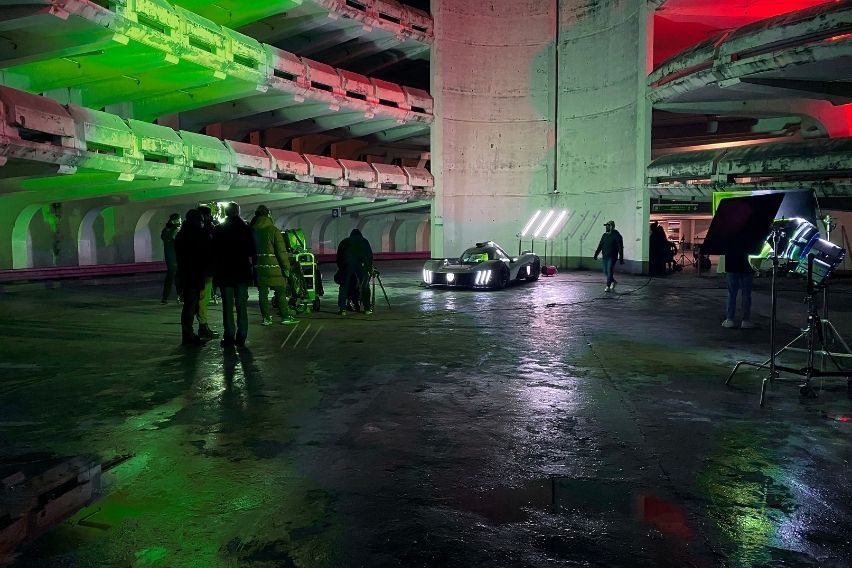
“Each photoshoot has its own anecdotes. Here, with the Peugeot 9X8, it was terribly cold,” Doroszewicz added. “But nothing could cool Matthias and his team’s passion in being part in the whole shoot. Their presence was highly motivating, as we took advantage of the opportunity to engage in a real discussion. The shoot was absolutely fantastic — the contrast between the pure aesthetics of the Peugeot 9X8 and the brutalist architecture was impressive, and the rough patina of the concrete’s texture was perfectly evocative of the world of race tracks.”
Photos from Peugeot
Sell your car at the best price
 Verified and genuine buyers
Verified and genuine buyers
-
Explore Peugeot 5008
Peugeot 5008 Related Stories
- News
- Featured Stories
Peugeot Car Models
Don't Miss
Trending & Fresh Updates
- Latest
- Popular
You might also be interested in
- News
- Featured Stories
Peugeot Featured Cars
- Upcoming
- Popular
Compare & Recommended
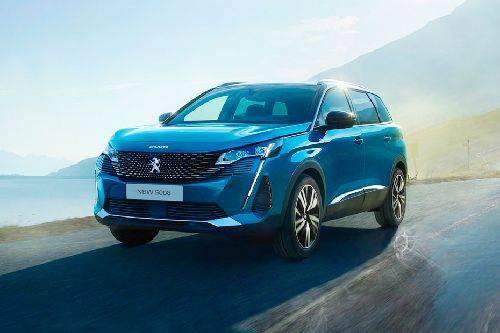
|

|
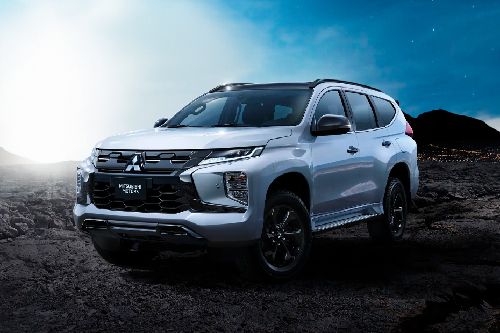
|

|
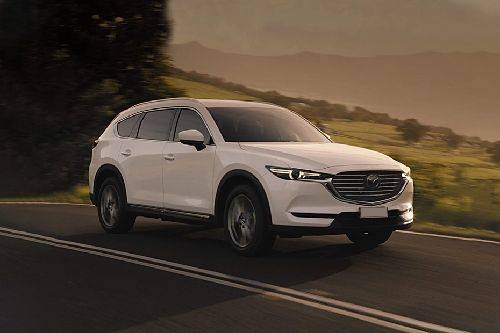
|
|
Seating
7
|
7
|
7
|
5
|
7
|
|
Fuel Type
Gasoline
|
Diesel
|
Diesel
|
Gasoline
|
Gasoline
|
|
Engine
1598
|
2393
|
2398
|
1995
|
2488
|
|
Power
165
|
148
|
179
|
154
|
187
|
|
Torque
240 Nm
|
400 Nm
|
450 Nm
|
196 Nm
|
252 Nm
|
|
Transmission Type
Automatic
|
Manual
|
Manual
|
CVT
|
Automatic
|
|
|
Trending SUV
- Latest
- Upcoming
- Popular
Peugeot 5008 Car Articles From Carmudi
- journal

